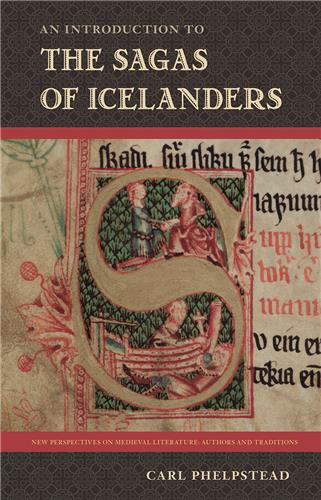Reaching from Texas to Florida and featuring a diverse array of voices from the past 100 years, this collection of environmental writing about the Gulf South region enriches how we understand the relationship between people and the rapidly changing ecology of the Gulf.
Browse by Subject: Literature
Please note that while you may order forthcoming books at any time, they will not be available for shipment until shortly before publication date
Reassessing Lawrence's relationship to American modernism and his American literary contemporaries, Jenkins offers new insights into the literary exchange between America and Europe.
Combining an accessible approach with innovative scholarship, Carl Phelpstead draws on historical context, contemporary theory, and close reading to deepen our understanding of Icelandic saga narratives about the island’s early history.
This volume offers a broad and rich view of the tradition of Old French epic poetry, or chansons de geste, by providing an updated English translation of three central poems from the twelfth-century Guillaume d’Orange cycle.
This new and provocative interpretation examines the formal similarities between the Decameron’s tales of wit, wisdom, and practical jokes and the popular thirteenth-century fabliaux.
This innovative analysis shows how James Joyce uses the language of prayer to grapple with intangible things in his dreamlike masterpiece Finnegans Wake. Colleen Jaurretche moves beyond what scholars know about how Joyce wrote this work to suggest exactly why it follows the order it does in its finished form.
Joyce and Geometry reveals the full extent to which the modernist writer James Joyce was influenced by the radical theories of non-Euclidean geometry. Tracing Joyce’s obsession with measuring and mapping space throughout his works, Ciaran McMorran delves into a major theme in Joyce’s work that has not been thoroughly explored until now.
This book is the first in-depth study of the forty short texts James Joyce called “epiphanies.” Sangam MacDuff argues that the epiphanies are an important point of origin for Joyce’s entire body of work, showing how they shaped the structure, style, and language of his later writings.
Focusing on the works of Edith Wharton and her contemporaries, Melanie Dawson discusses representations of modern American identities past early youth in twentieth-century literature. Dawson sets Wharton’s work at the center of a vital debate about the contested privileges associated with age in contemporary culture.











